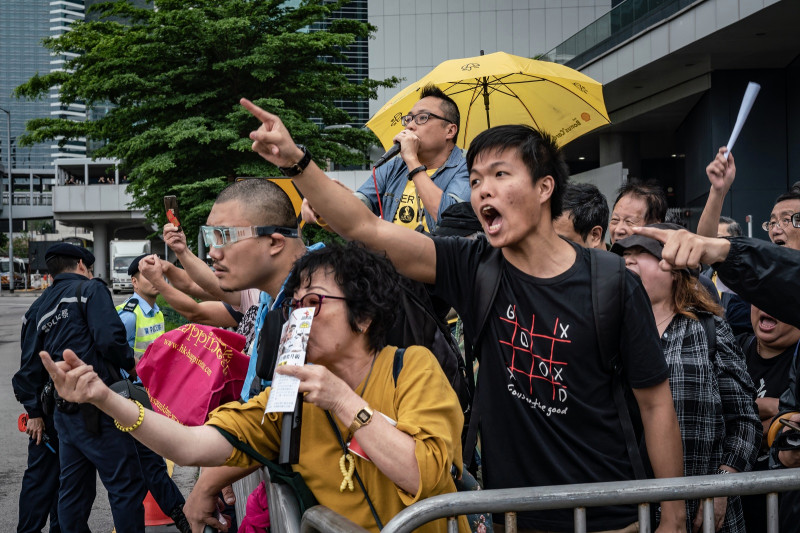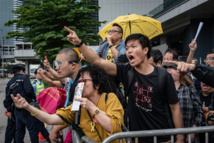She said the government would also support an inquiry into police actions led by the existing Independent Police Complaints Council, which would be joined by overseas experts and two government appointees.
The IPCC review stops short of a key protest demand that the government launch an independent inquiry, led by a judge, into police violence at protests.
The demonstrations began on June 9 against the legislation, which would have allowed for criminal extradition to mainland China. Since then, however, they have spiralled into a larger anti-government movement and the worst political crisis since Hong Kong returned to Chinese rule in 1997.
The protest movement has also renewed calls for democratic elections, in scenes reminiscent of 2014's democracy protests, as the Beijing-approved government has largely been perceived as ineffective and broken.
While hundreds of thousands of Hong Kongers have taken to the streets to peacefully protest the bill, demonstrations in recent weeks have descended into violent confrontations between residents and police that have seen petrol bombs and water cannons deployed.
Over 1,100 people have been arrested, according to police, while the city has also seen a number of suicides linked to the demonstrations.
Lam said that for many, "Hong Kong has become an unfamiliar place," with "chaotic scenes at the airport and MTR stations" due to confrontations between police and protesters. "Roads and tunnels have suddenly been blocked, causing delay and inconvenience to daily life," she said.
The withdrawal of the bill is an about-face for Lam, who initially championed the legislation.
Lam argued that it was intended only to close "legal loopholes" in Hong Kong law by allowing for residents to be extradited to the mainland on a case-by-case basis.
She did not appear to count on the fear many residents of the former British colony feel for China's legal system and concern that the city retains its promised autonomy until 2047, under the "one country, two systems" agreement.
Lam suspended the bill in mid-June, insisting it was "dead," but her promises failed to assuage members of the public, who said they no longer trusted her.
Since Britain handed the territory back to China, Hong Kong's chief executive has had to tread a fine line between residents' wishes and those of Beijing.
Forced into retreat by the latest protests, Lam has denied reports published in recent weeks that she would step down if she could.
Civil Human Rights Front, the organizer of mass anti-government rallies in Hong Kong, said Wednesday that it would continue to protest even if Lam withdrew the extradition bill.
Bonnie Leung of Civil Human Rights Front said protests had extended far beyond that point over 13 consecutive weeks of demonstrations.
Besides the bill withdrawal and police inquiry, demands include that Lam step down, as well as for police to remove the charge of rioting from arrested protesters. Many have added calls for political reform and democratic elections to their list.
"It is the slogan that is roaring in the streets, even on the 18th of August, 1.7 million people roaring the same slogan: 'Five demands no less'," said Leung.
"Without an independent inquiry, our society simply cannot move on, because what we are seeing now is that police beat up people indiscriminately every single day. They use excessive force, lethal weapons against protesters every single day," she said.
Separately Wednesday, a group of masked protesters also said at a "citizen's press conference" that demonstrations would continue until their demands were met.
"What used to be one demand – withdrawal of the bill – has snowballed into five demands," a masked woman told reporters. "We are one demand down and we are five to go. We will not settle for one less."
The group, holding its ninth press event, said protests come at a particularly crucial time as the US Congress returns from its summer recess.
Legislators from both sides of the aisle have called for Congress to pass the Hong Kong Human Rights and Democracy Act, which would allow the US government to revoke visas or freeze assets of officials found to "suppress basic freedoms" of Hong Kong residents.
-----------------------------------------------------------------------------------------------









 Home
Home Politics
Politics











